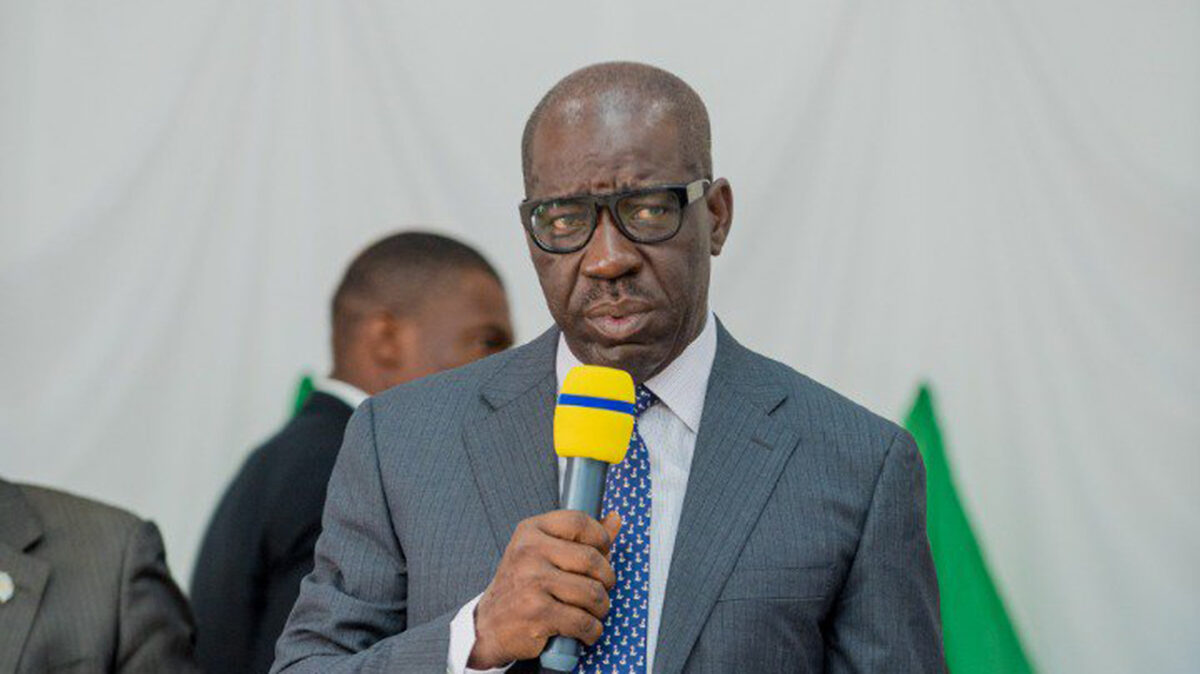Governors elected on the platform of the All Progressives Congress (APC) and their Peoples Democratic Party (PDP) counterparts Sunday tackled each other over the claim by Edo State Governor Godwin Obaseki that the Federal Government printed N60bn to support the March allocation to states.
While the former disowned Obaseki over his claim, the latter defended him.
- Terrorism financing: Dozens arrested in nationwide crackdown
- Residents jittery as bandits regroup in Zamfara forest
The Minister of Finance, Zainab Ahmed, had dismissed Obaseki’s claim, but the governor of the Central Bank of Nigeria, Godwin Emefiele, had hinted that the money could have been printed to support the economy
In a statement yesterday, Kebbi State Governor and chairman of the Progressives Governors Forum, Atiku Bagudu, said Obaseki’s claim did not reflect the true position of things.
“Given the significance of the statement from a sitting governor and the possible negative impact it has brought to the credibility of both the federal and state governments in managing government finances, the forum is obliged to put a statement out.
“To set the records clear and to the best of our knowledge, the total distributable statutory revenue for the month of March 2021 was N596.94bn.
“Due to the shortfall in gross statutory revenues by N43.34bn compared to the previous month, an augmentation was made in the sum of N8.65bn from the Forex Equalization Fund Account, which brought the total distributable revenue to N605.59bn.
“Federation revenues distributed monthly primarily consist of mineral revenues from the sale of oil and gas, as well as non-mineral revenues from customs and excise duties, company income tax, and value-added tax.
“The progressive governor admits that there are periods when the country experiences significant fiscal shocks in federation revenues but says the shocks are offset by other savings serviced from the federation account, including distributions from the domestic excess crude proceeds and the foreign excess crude savings account.
“These payments started since 2008 when the country first experienced fiscal shocks from the fallouts of the global financial crisis of 2008 – 2009.
As a trained economist who has been a governor since 2016, Mr Obaseki is aware of all the support states have received from president Buhari in coping with the shocks that have resulted from the COVID-19 pandemic and resulting economic recession”.
Reacting through a statement by its Director-General, Cyril Maduabum, the PDP Governors Forum said it was unhelpful for the All Progressive Governors Forum to attack Obaseki for merely warning the monetary authorities on the danger of uncontrolled ways of supporting government expenditure.
“It’s unhelpful for the Progressive Governors Forum to join the fray in the manner it did by its recent statement attacking the bona fides of Governor Obaseki who merely warned the monetary authorities about the danger of uncontrolled use of ways and means, that is, the printing of naira, to support government’s expenditure.
“Governor Obaseki has a background in economics and finance and is a very responsible governor who talks in a measured way.
”His advice, which by the way has been corroborated by none other than the governor of the Central Bank of Nigeria, himself, and the international rating agency FITCH , should be heeded rather than being crucified for sounding a note of caution.
“No doubt, the federal government has been supporting the states in the area of agriculture, budget, refund of Federal Government executed projects by states and a few other areas of intervention.
“Is CBN trying to be vindictive and vengeful by recalling its loans to the states because of informed advice by a governor? It is unfortunate that governance has plummeted to this level.
“The Federal Government should plug financial leakages in the system and curb wasteful expenditure of billions of naira on projects that can be executed by the private sector and save a lot of money in the process, thereby relying less on ways and means by the CBN, which brings pressure on the Naira with its inflationary consequences.”

 Join Daily Trust WhatsApp Community For Quick Access To News and Happenings Around You.
Join Daily Trust WhatsApp Community For Quick Access To News and Happenings Around You.


